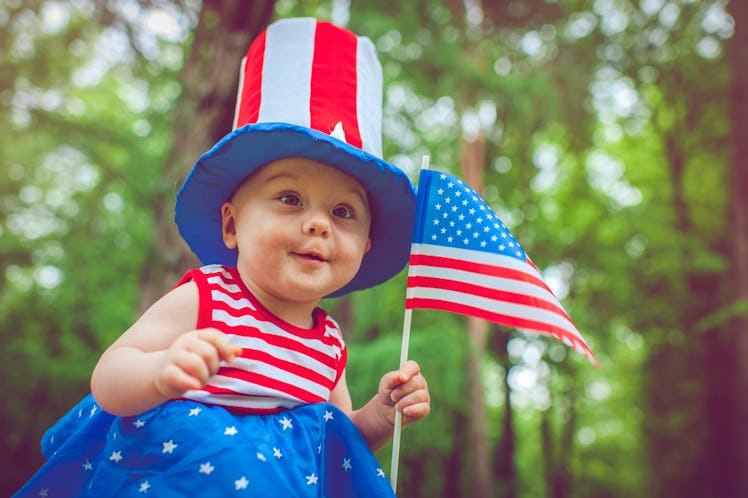What Baby Names Say About Parents’ Political Ideology
Parents name their kids names that they like. But those choices are guided by their race, their wealth, and their politics, according to new research.

Choosing a baby name can feel like a deeply personal journey or a random cultural grab-bag. Whether your kid ends up as a sixth-generation “John Adrian Smith” or a first (and likely last) generation “Sandor ‘The Hound’ Smith,” the name tells a lot about the parents. Research points to the fact that the name you choose for your baby can shed light on your cultural upbringing, your socio-economic status, and, yes, even your political beliefs.
Are we talking about naming your kid after big political figures? In a surprising number of instances, yes. According to Stefano Ghirlanda of Brooklyn College and founder of Nameclouds, a robust baby name database, after 1992, when former President Bill Clinton was elected to higher office, the name Hillary — his first lady and future New York senator turned-two-time presidential candidate — tanked in popularity. This was likely due to her widespread unpopularity as First Lady that continued throughout her political career, and it seems that both political persuasions felt the burn. As for the name Franklin — as in, FDR — the name soared in popularity during the 1940s and is enjoying a small uptick today amongst wealthy, educated, liberal and conservative parents.
But the politicization of names runs deeper. A study from political scientists at the University of Chicago found that controlling for race, address, education and by utilizing Census data of Californian newborns in 2004, there were clear patterns in baby names and wealth, race, and politics. For example, people who live in liberal neighborhoods are more likely to choose unusual names, particularly if the mother is college-educated. Likewise, parents of color are likely to also choose unusual names but spell them in different ways than white, liberal educated moms. And conservatives are the most likely of all to choose traditional names like Richard, which are associated with historically wealthy white people, suggesting that conservatives value wealth and tradition when it comes to naming their children.
According to the more modern data in Nameclouds, the names Taylor, Malcolm, Jeffrey, Preston, Bryson, Graham, Ruth, Holly, Kylie, Catherine and Kate are all super popular among the ultra-conservative neighborhoods in the United States from about 1980 on, with a few exceptions (Jeffrey is not as popular a name as it once was).
This tracks with previous research that shows that conservative parents prefer names that have hard consonants (Kylie, Catherine, Kate are all staccato names.) Some of the most popular names among liberal parents from 1980 to today include Lily, Elise, Alexandra, Eliza, and Madelyn as well as Philip, Theodore, Edward, and Sean. Those names include a lot of soft-vowel sounds, which appear to be liked largely by liberal parents.
Unsurprisingly, names like Harper — one of the most popular baby names of 2018 — skew somewhat middle of the road. Liam, the most popular name for baby boys, however, skews very, very liberal. Malia the name of one of the former first daughters of former President Obama, also skews liberal, and became increasingly popular in the early 2000s, when the President took office.
What’s it all mean? That depends on where you stand. The very common name ‘Joshua’, for example, seems to not correlate with any trends at all. The same goes for “Andrew.” Some liberal-leaning parents might name their kids after their grandmother June because June is a cool name, a great month, and, hey, they love grandma. If June Carter is a hero to a slew of conservative southerners… so be it.
This article was originally published on